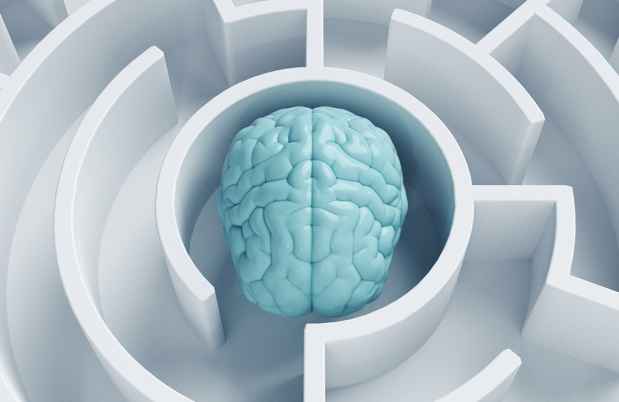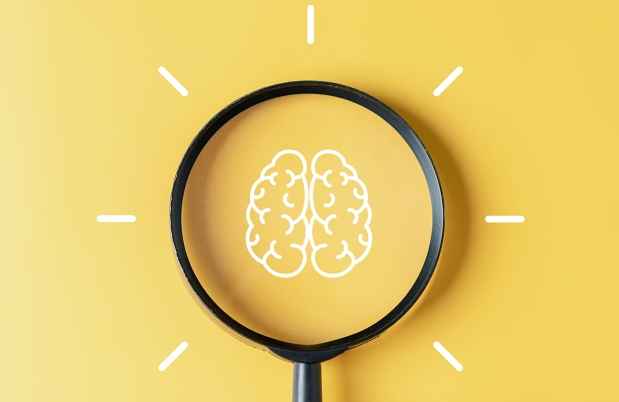Ketamine Service
Using proven, evidence-based interventions to help individuals who struggle with depression. Call us today to find out if ketamine or esketamine is right for you.
The Ketamine Service at McLean Hospital offers specialized treatment for adults struggling with depression, especially major depressive disorder and bipolar disorder.
Our data-driven, evidence-based service applies cutting-edge research to clinical practice. We create personalized treatments based on thorough, scientific evaluation of each patient.
Although it has been used for years as an anesthetic, ketamine has been shown to be a highly effective treatment for many individuals who struggle with severe depression.
In addition, those who are experiencing symptoms that are threatening their health or safety may be good candidates for ketamine, which can often work more quickly than other treatments.
Our dedicated treatment team includes psychiatrists and nursing staff who have both medical and psychiatric training. Staff are uniquely equipped to assist our patient population and ensure that treatments are administered in the safest manner possible.
We offer two types of ketamine therapy. Our services are available as outpatient treatments or as a component of inpatient care:
- On our Belmont campus, we provide IV ketamine infusion and intranasal esketamine administration
- On our Oak Street location in Middleborough, we offer intranasal esketamine treatment
Ketamine infusions are delivered via intravenous (IV) procedure over 40 minutes. Patients remain awake during the treatment. Many individuals opt to read, listen to music, or just relax. Patients are monitored before, during, and after the treatment according to evolving standards of best and safe practice.
Esketamine (Spravato) is FDA approved for the treatment of patients who struggle with major depressive disorder. People who receive esketamine are also on other antidepressant medications.
Esketamine is self-administered intranasally under the supervision of a nurse. Patients are also monitored before, during, and after this treatment. Our procedures are in line with the FDA-mandated REMS reporting system.
McLean’s Ketamine Service is available in two locations. In Belmont on McLean’s main campus, the service is located within the ECT/TMS suite in the de Marneffe Building. In Middleborough, the Neurotherapeutics Suite is at our Oak Street site.
Treatment Approach
Ketamine and esketamine have been shown to be effective interventions for severe depression, with or without anxiety, particularly for individuals who have struggled with standard therapies.
In recent years, research efforts and reports from ketamine clinics have demonstrated success in using these drugs to quickly and effectively address severe depression.
At McLean, ketamine and esketamine are used to help depressed individuals who have not responded to at least two courses of medications most often prescribed for depression. They can also help individuals who are experiencing acute suicidal thoughts or behaviors and who would benefit from a fast-acting intervention.
It is important to note that ketamine therapies should never be considered as a replacement for psychiatric admission for patients who may be a danger to themselves or others.

Staff at the Ketamine Service are committed to providing world-class care to patients
The Ketamine Service works alongside McLean’s Electroconvulsive Therapy (ECT) and Transcranial Magnetic Stimulation (TMS) Services. Patient treatment plans are customized to meet the needs of the individuals and may include the options for any of these interventions.
Patient consultations determine whether ketamine infusions, intranasal esketamine, electroconvulsive therapy (ECT), or transcranial magnetic stimulation (TMS) is the appropriate course of treatment for the patient’s psychiatric symptoms, diagnoses, and treatment goals.
If a thorough evaluation indicates that ketamine or esketamine is the right approach, an arrangements are made for a medical clearance before the first treatment.
Depending on the patient’s treatment goals, people coming to the Ketamine Service for IV ketamine may receive a single infusion of ketamine, engage in a course of 3-4 infusions (“ketamine challenge”), or take part in a series of 8 infusions (“acute phase”), with subsequent treatment tapered according to individual need.
Esketamine treatments follow an FDA-approved algorithm with twice weekly administrations during the acute phase, followed by a second phase with weekly treatments and finally transition to a maintenance phase of treatment (generally every 1-3 weeks).
Appointments
McLean’s Ketamine Service provides treatment to adults with depression, with or without accompanying anxiety or other symptoms, especially patients with major depressive disorder or bipolar disorder.
The program is ideal for individuals who have previously struggled with standard therapies or who are at risk to themselves or others and require urgent intervention.
For more information about our program or to make a referral, please contact our administrative staff:
Belmont
Phone: 617.855.2364
Middleborough
Phone: 508.923.5445
Referral Form
Referring clinicians should fill out the Ketamine Service Referral Form so that we may determine whether the program is good fit for the individual and gather the appropriate patient information.
Cost
Generally, consultations are covered by insurance. Coverage of IV ketamine and intranasal esketamine varies by insurance company. Please be sure to check with your insurance provider to learn more about what your plan may cover.
For patients who pay for the treatments out of pocket and seek reimbursement for ketamine treatment from their insurance providers, we can assist you by providing requested documentation.
McLean Hospital accepts Medicare, Massachusetts Medicaid, and many private insurance and managed care plans.
More information on insurance providers accepted by McLean Hospital may be found on the Mass General Brigham website. You may also find it beneficial to review McLean’s patient billing and financial assistance information.
Treatment Team
Program Leadership

Paula Bolton, MS, CNP, ANP-BC, Program Director
A nurse practitioner in the Internal Medicine Department at McLean Hospital for more than 25 years, Ms. Bolton has focused on health promotion and disease prevention for psychiatric patients. She was instrumental in both the expansion of the inpatient and outpatient Electroconvulsive Therapy (ECT) Service and the development of the Transcranial Magnetic Stimulation (TMS) and Ketamine Services on the Belmont and Middleborough campuses.

Robert C. Meisner, MD, Medical Director
Dr. Meisner is also an attending psychiatrist in the Acute Psychiatric Service at Massachusetts General Hospital. He graduated from Princeton University, attended Harvard Medical School, and served as a resident in internal medicine and in anesthesia, critical care, and pain medicine prior to training in psychiatry. Dr. Meisner has previously held many roles at Harvard College, including as acting residential dean at Currier House.

Stephen J. Seiner, MD, Medical Director, Psychiatric Neurotherapeutics Program
As director of McLean’s Psychiatric Neurotherapeutics Program, Dr. Seiner oversees the hospital’s ketamine, electroconvulsive therapy, and transcranial magnetic stimulation services. He is also an assistant professor of psychiatry at Harvard Medical School. Dr. Seiner has published book chapters and journal articles, and has lectured in multiple venues.
Staff & Associates
Our multidisciplinary team of clinicians and support staff includes psychiatrists, psychiatric nurse practitioners, and registered nurses with extensive training and experience in both psychiatry and medical care. Working in close partnership with patients and families, we provide high-quality care tailored to each individual’s needs.
This well-trained team has an extensive background in the treatment of severe depression and related conditions. Our staff has experience working with patients from diverse cultural and socioeconomic backgrounds from across the country and around the world.
Frequently Asked Questions
Where is the Ketamine Service located?
The program is on the Belmont campus, in the de Marneffe Building, and on our Oak Street facility in Middleborough. For more information on directions, parking, and local accommodations, please visit our Maps & Directions page.
Who benefits most from ketamine or esketamine treatment?
Ketamine therapy is an outpatient or inpatient service that focuses on treating individuals living with severe depression who are not responding to standard treatments.
In addition, those who are experiencing severe symptoms of depression or other mental illness that are threatening their health or safety may be good candidates for ketamine, which can often work more quickly than other treatments.
Is family involved in treatment?
Family can be involved in the consultation for ketamine. Family members are invited to join meetings with the doctor after each treatment to review the treatment plan.
Is smoking permitted?
Smoking is allowed in designated outdoor areas only. No smoking is allowed inside any of our buildings.
Are cell phones and other electronics allowed?
Cell phones are allowed in the suite, but the cell signal is poor. There is a cordless phone in the recovery room, or staff can place a call. Additionally, we are just below the cafeteria—which does get a better signal—and family members who want to wait there can take a pager from the suite and will be paged when the treatment is complete.
Can former patients access their medical records?
All requests for medical records should be directed to McLean’s Health Information Management Department.
Are support groups offered?
To complement our programs’ services and encourage individuals’ initiatives in their own treatment course, many self-help groups are hosted by McLean.
McLean Is Here to Help
Call us today to learn more about ketamine treatment options.



